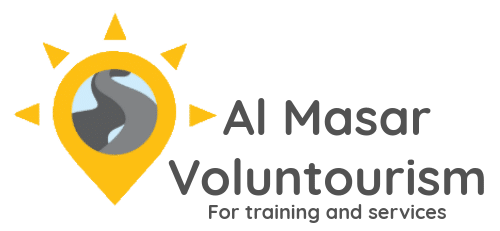Egypt programs
Volunteering
Programs
Volunteer requirements
- Volunteers aged 16 - 17 years must be accompanied by an adult to participate in this program. Volunteers aged 18+ can take part independently.
- All volunteers are required to speak fluent English, have adequate volunteer travel insurance and provide a criminal background check before departure.
Arrival and orientation
The Egypt volunteer program begins on the first and third Saturday of every month. You need to arrive in Cairo on the Friday before your chosen start date. The Egypt work week runs from Sunday to Thursday, with Fridays and Saturdays free.
- After you have registered for the program, please book your flights to arrive at Cairo International Airport (CAI). The cost of your airport pick-up is included in your Program Fee.
- When you arrive, you will be greeted at the airport by a member of the local team and taken to the volunteer accommodation, a 45 minute drive away.
- Your accommodation is covered by your Program Fee and includes the night before your program orientation.
- If you are traveling in Egypt prior to your volunteer program, we can arrange for you to be picked up from a meeting point in central Cairo on the Friday before your program start date.
Location
Accommodation
Meals
Location
Cairo, Egypt’s sprawling capital, is set on the Nile River. At its heart is Tahrir Square and the vast Egyptian Museum, a trove of antiquities including royal mummies and gilded King Tutankhamun artifacts. Cairo is the capital and largest city of Egypt. The city’s metropolitan area is the largest in the Middle East and the Arab world, and 15th-largest in the world, and is associated with ancient Egypt, as the famous Giza pyramid complex and the ancient city of Memphis are located in its geographical area.
Cairo has the oldest and largest film and music industry in the Arab world, as well as Egypt’s oldest institution of higher learning, Al-Azhar University. Many international media, businesses, and organizations have regional headquarters in the city; the Arab League has had its headquarters in Cairo for most of its existence.
Program placements are located in and around Cairo.
Accommodation
You’ll be hosted in a homestay where you’ll live with a local family or other participants. It is an exciting chance to learn the Egyptian way of life, meet local people, eat local food, speak the local language and engage in local customs and traditions. The families and the local hosts receive money from your program fee for support, food and board. This is an opportunity for you to directly see your fees having a positive impact in the community and going back into the local economy. Living is basic yet comfortable, and all homestays have electricity, WiFi and running water. Participants can expect to share a room with other participants of the same gender, however in some homestays participants have their own rooms.
Meals
Participants are provided with breakfast, lunch and dinner every day, with all meals served at your homestay. Breakfast and dinners tend to be smaller portions with mixed platters including Foul Medames (Fava beans) Falafel (Also Fava beans in its core) with other side dishes such as fries, eggplant, fried/boiled eggs, cheese, and pickles and tea. Lunch is the bigger meal of the three, and can include a range of meats, breads, rice dishes, salads and vegetables.
Bottled water is readily available in Egypt and participants should budget approximately $5 a week for two liters a day. If you have any special dietary requirements, please let us know when you apply for the program so we can make arrangements for you.
On Saturday, orientation is taking place in Cairo and runs for a full day. Orientation covers everything you need to know for your volunteer program in Egypt – an introduction to Egypt, Egyptian customs, rules and expectations, safety, travel opportunities in Egypt, and an introduction to your project and placement. The orientation will also give you a chance to meet other volunteers and swap contact details for weekend travel and socializing.
Egypt (Arabic: مصر ), officially the Arab Republic of Egypt, is a country linking northeast Africa with the Middle East. Cairo is the capital and largest city of Egypt, while Alexandria, the second-largest city, is an important industrial and tourist hub at the Mediterranean coast. At approximately 100 million inhabitants, Egypt is the 14th-most populated country in the world, and the third-most populated in Africa.
Egypt has one of the longest histories of any country, tracing its heritage along the Nile Delta back to the 6th–4th millennia BCE. Considered a cradle of civilisation, Ancient Egypt saw some of the earliest developments of writing, agriculture, urbanization, organized religion and central government. Egypt’s long and rich cultural heritage is an integral part of its national identity, which reflects its unique transcontinental location being simultaneously Mediterranean, Middle Eastern and North African.
Egypt is a recognised cultural trendsetter of the Arabic-speaking world. Contemporary Arabic and Middle-Eastern culture is heavily influenced by Egyptian literature, music, film and television. Egypt gained a regional leadership role during the 1950s and 1960s, giving a further enduring boost to the standing of Egyptian culture in the Arabic-speaking world.
Essential country information
Capital
Population
Languages
Currency
Time zone
Weather and climate
Throughout Egypt, days are commonly warm or hot, and nights are cool. Egypt has only two seasons: a mild winter from November to April and a hot summer from May to October. The only differences between the seasons are variations in daytime temperatures and changes in prevailing winds.
In the coastal regions, temperatures range between an average minimum of 14°C in winter and an average maximum of 30°C in summer.
Temperatures vary widely in the inland desert areas, especially in summer, when they may range from 7°C at night to 43°C during the day. During winter, temperatures in the desert fluctuate less dramatically, but they can be as low as o°C at night and as high as 18°C during the day.
Throughout the Delta and the northern Nile Valley, there are occasional winter cold spells accompanied by light frost and even snow. Egypt receives fewer than eighty millimeters of precipitation annually in most areas. Most rain falls along the coast.
A phenomenon of Egypt’s climate is the hot spring wind that blows across the country. The winds, known as the khamsin, usually arrive in April but occasionally occur in March and May. The winds reach high velocities and carry great quantities of sand and dust. These sandstorms, often accompanied by winds of up to 140 kilometers an hour, can cause temperatures to rise as much as 20°C in two hours.
Affordable Arabic Language Lessons
Arabic language lessons can be arranged outside of your Internship/Volunteering hours and are taught by local Arabic teachers. lessons can be booked in advance:
10 hour
20 hour
30 hour
40 hour
Free-time experiences & tours in Egypt
- A trip to Egypt is not complete without visiting one of the world’s most remarkable sites, the Pyramids of Giza.
- Take a felucca ride, have dinner or join a multi day cruise upon the Nile River.
- The home to the nation's oldest pyramid: the Step Pyramid of Djoser in Saqqara-Memphis.
- The world's greatest open-air museum Luxor. Luxor is home to Karnak, Luxor Temple, Luxor Museum, Valley of the kings, Hatshepsut Temple, Mummification Museum, Colossi of Memnon, Valley of the Queens, Tomb of Tutankamun and more.
- The beautiful Nile Valley scenery, significant archaeological sites in Aswan where you can visit Philae Temple, Pylon Panorama, the unfinished Obelisk, Nabian Museum and village, Felucca ride on the Nile River, Kom Ombo and EDFU, Abu Simbel Temples the Aswan high dam and many more sites.
- One of the Seven Wonders of the Ancient World Alexandria.
- The beautiful beaches, warm climate and abundance of activities such as diving, snorkeling, windsurfing in Hurghada.
- The beautiful beaches, clear waters of the Red Sea in Al-'Ain al-Sokhna.
- The glorious white sandy beaches, clear waters, and stunning coral reefs in Sharm El Sheikh.
- The Dendera Temple complex, Dedicated to the goddess Hathor and her son Horus the and the Temple of Hathor.
- And Many more sites such as, white desert, Abydos Temple, Siwa Oasis, Wadi Al-Hitan and Monastery of St.Anthony.
Al Masar Experiences & Tours In Egypt
Available exclusively to Al Masar participants, these must-do experiences and tours can easily be added to your trip!
The price of these add-on are based on you having a Jordan Pass. If you decide not to purchase a Jordan Pass, you will need to pay the additional entry fee for the places you will be visiting while doing the tour.
One day
Trip to North Jordan (Um Qais, Ajloun and Jerash)
One day
Mount Nebo Trip to Dead Sea Lunch Dead sea
One day
Trip to The Baptismal Site of Jesus Christ and and Ma'in Hot Springs Without Lunch
One night
Two days Petra and Wadi Rum
Two nights
3 days (Petra wadi Rum and Aqaba)
Egypt programs prices
Prices
| Duration | Program Fees |
|---|---|
| 1 Week | $729 Equivalent to $104/day |
| 2 Weeks | $1019 Equivalent to $73/day |
| 3 Weeks | $1309 Equivalent to $62/day |
| 4 Weeks | $1599 Equivalent to $57/day |
| 5 Weeks | $1889 Equivalent to $54/day |
| 6 Weeks | $2179 Equivalent to $52/day |
| 8 Weeks | $2759 Equivalent to $49/day |
| 10 Weeks | $3339 Equivalent to $48/day |
| 12 Weeks | $3919 Equivalent to $47/day |
Price Includes
- Accommodation
- Meals
- 24/7 in-country support
- In-country program orientation
- Airport pick-up
- Pre-departure support from your Program Manager
- Certificate of Volunteer Service
Important things to note
All programs attract a Registration Fee of US$150 in addition to the Program Fee. This covers all pre-departure support services.
Additional things to budget for include: Visa, flights, travel insurance (mandatory), vaccinations, criminal background check, public transport to and from your placement each day and return to the airport when your program finishes.
Participants who opt to arrange their own accommodation will not be eligible for airport pickup services. In such cases, the program fees will be reduced by 40% from the standard rates listed above.
Recommended spending money: Volunteers in Egypt generally find US $50 to be sufficient for basic weekly expenses.
By registering with us you agree to the terms and conditions of service.












































































